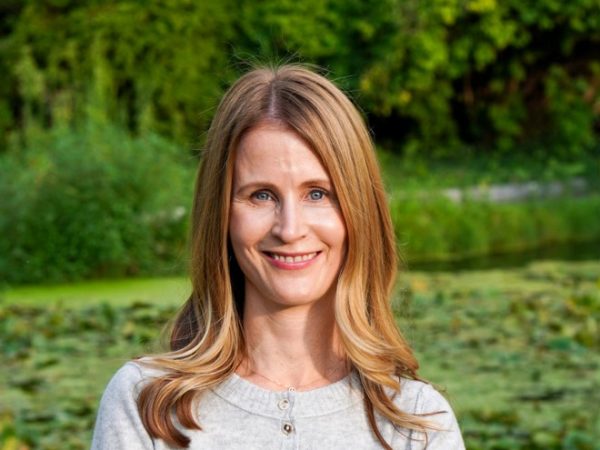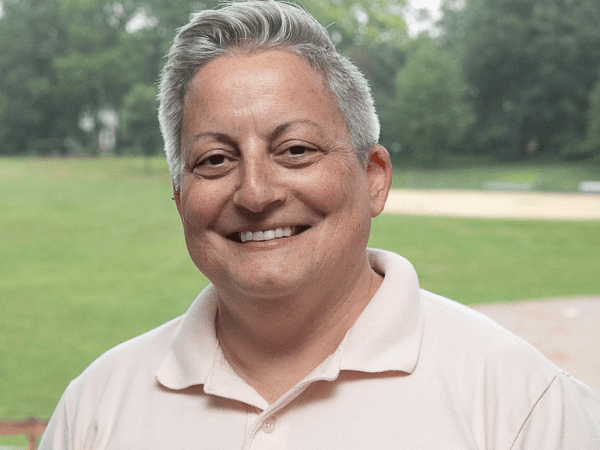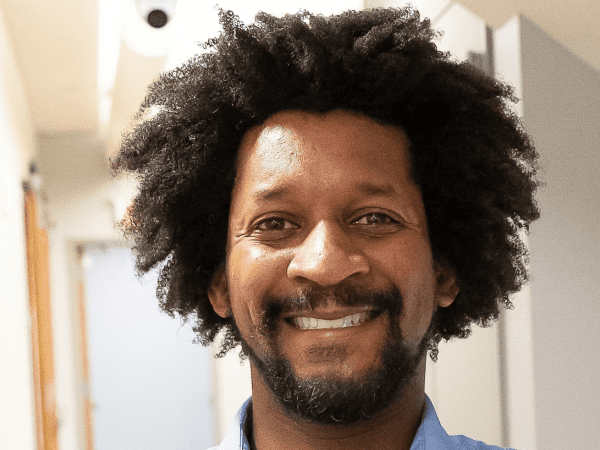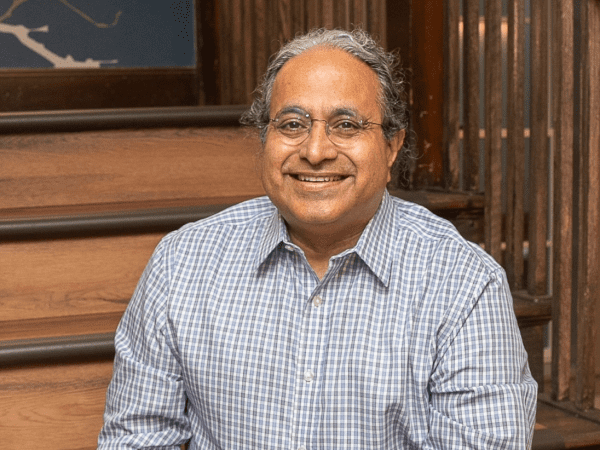Each year, Village Green sends a questionnaire to the candidates for South Orange-Maplewood Board of Education to answer. We post answers by question topic. Candidates are asked to answer as individuals, not as a slate. They are also asked to keep answers to no more than 500 words each. Here is the Q&A for all seven candidates on the Rutgers Report Committee (formerly known as the Fergus Committee):
VG: At a recent meeting of this full board committee, one board member cited a lack of specifics and action plans needed to implement the recommendations the district is required to complete by August 2026. The Black Parents Workshop noted a lack of “clear and discernable metrics” that show how the district is progressing in addressing equity disparities regarding this settlement. Do you agree or disagree with these assessments? How can the Rutgers Report Committee best support the district in the goal of implementing the required recommendations by the deadline? Do you feel that there are other measures/methods outside or the Rutgers Report for working toward equity?

Deirdre Brown
DEIRDRE BROWN:
Yes, I agree with these assessments. It was clear from the update on July 24, 2024, by Dr. Fergus that we have made little progress on the recommendations from the Equity audit. I believe these recommendations are our district’s best roadmap for making progress on our achievement gap and should be prioritized. Not only do we need to create clear measures and milestones with dates to hold ourselves accountable, but we also need to consider the recommendations as part of our budgeting process/prioritization. Implementing the recommendations will be a multi-year effort because of the time and resources involved, which is all the more reason we need to implement tracking processes, as well as multi-year budget planning for success.
I was heartened to see Mr. Bing present his preliminary visions at the Board retreat in August. His plan is to outline district goals with specific actions underneath each with a tracking system for each action item spanning from ‘not yet started’ to ‘fully implemented and successful’. He stated that action items would reflect recommendations from the Equity audit, as well as Special Education audits. While action items have not been provided publicly to date, this is promising.
I believe our district has a history of trying too many initiatives at once. We tend to rush in new policy or decisions without fully bringing in stakeholders and examining available evidence nor thinking through implementation and potential ramifications. For that reason, we should focus on the Equity recommendations and not initiate new proposals. That said, one current policy, our Intentional Integration Initiative, still needs refinement. We can support the intention of this effort while doing more to meet parents’ preferences and hardships. Further, we must be sure we are engaging and listening to the families most impacted by this initiative. Our surveys to families have been poorly designed and tend to get responses from the most vocal, engaged parents. I do not believe we have done enough engagement and outreach to lower-SES families and families with students of color before, or since, we implemented the Intentional Integration Initiative, even though those families have been disproportionately impacted by the Initiative. What are their feelings about the Initiative? How has it impacted them and their children? What is working well and what can be improved? These types of questions need to be asked, and responses taken into account, with any new initiative the district intends to implement, and as it monitors implementation. Voices that are often marginalized need to be at the table.
______

Bethany Joseph
BETHANY JOSEPH:
The work toward equity in the implementation of the Rutgers plan is interconnected with the work the district is doing in the Intentional Integration Initiative, the access and equity policy and the recent pledge by Superintendent Bing to expand our use of MTSS [Multi-Tiered System of Supports] to address the individual needs of students regardless of what level they are placed in.
If elected to the Board, I would review the report, recommendations, what items have been put in place, and what issue(s) still require actionable plans. At the hospital we use S.M.A.R.T. goals for our individual program, department and hospital-wide goals. Everything must be specific, measurable, achievable, relevant and time-based. The same standards should be used in the District, again, if they are not already in place. The foundation for this work is stability. Stability on the Board and in the District as a whole. Stability provides the Board the needed capacity to focus on giving the Superintendent the right directives about reporting progress, leading the initiatives and on giving him the resources and staff he needs to do this work.
_______

Bimal Kapadia
BIMAL KAPADIA:
I agree with the assessment that there has been no clear metrics toward how the Board is progressing. That said, our first student score data will be available in 2025, providing a real opportunity to determine if we are progressing toward reducing the achievement gap, which is intertwined with equity. The Board should incorporate the Fergus recommendations into their overall goals with quarterly check-ins to ensure progress. The district should also re-energize academic excellence alongside the arts and music for working toward equity. These include:
- Bringing rigor back into the classroom. All students, regardless of course level, should be taught the necessary skills and challenged academically. This growth mindset and philosophy is supported by Dr. Fergus’s findings.
- Re-building the special education program. With a new Assistant Superintendent of Special Services, this is an exciting opportunity to rebuild a program that has frustrated many families. We support the District’s recent audit of the Special Education Department, which should be used to guide the way for much needed improvements.
- Revitalizing the gifted and talented program. Gifted and talented education in the district has been marginalized. We need a well-planned program with a developed curriculum, opportunities for students to work together, and clear enrollment criteria to ensure no selection bias and to help close achievement gaps.
- Reinvesting in Career and Technical Education at Columbia High School. Expanding Career and Technical Education is vital for meeting the diverse interests of our students. By taking advantage of grant opportunities and partnerships, we can expand programs without impacting the budget and create post-high school pathways.
- Reinvesting in the arts and music curriculum. The identity of SOMSD is in the arts. The town vibrates with creativity from the students to the parents, to the small businesses, to the studios. The arts have the power to address issues of climate, culture, equity, community and youth development. We should also invest in the arts and music to embrace creativity and bolster the current services provided to the special education students. Our district can be a real champion of this approach, intertwining the arts curriculum into the programs designed for special education. The arts can be impactful here, even drawing the interest of special needs students outside the district to enroll in SOMSD

Paul Stephan
PAUL STEPHAN:
I agree that we need to translate some of the recommendations of Dr. Fergus and his colleagues into more discrete and measurable goals, and to develop actionable steps to meet those goals. Many businesses and other organizations use the concept of SMART goals: specific, measurable, achievable, relevant, and time-bound. Some of the recommendations from Dr. Fergus and his colleagues are closer to being SMART goals than others. For example, the 2023 Equity Audit recommends that the District “[d]evelop and implement a professional development series that focuses on continued development of cross-cultural capacity.” It’s easy to tell whether we’ve put in place a professional development series, and to set a timeframe for achieving it. But another recommendation is to “ensure” that “lower-track math classes” “align with higher-level cognitive skills such as evaluation and creation (the two upper tiers of Bloom’s Taxonomy).” The Rutgers Report Committee should work to build that recommendation into measurable goals with substeps. Here, for example, the 2023 Equity Audit identifies that the difference in rigor between higher- and lower-track classes starts with disparities in standards and trickles down to disparities in curriculum. The District doesn’t dictate standards (the State does that), but it does control curriculum, so sub-goals would include auditing our present middle school math curriculum and then either revising or replacing it. The next sub-goal would be to provide professional development to teachers to teach that new curriculum and build increased rigor into each lesson. The next sub-goal would be to observe and evaluate how this is working in the classroom.
I am optimistic that the Board can move forward to set concrete goals with timelines for implementation. Our new Superintendent, Mr. Bing, has discussed using a “baseball card” to track the status of different goals, and that idea can be adopted for the Fergus recommendations. Additionally, the recent presentation to the Board on developing an improved tiered system of supports was a model of how the administration, with feedback from the Board, can develop these recommendations into concrete action. The Board also took a step in the right direction by establishing a committee of all Board members to implement the Fergus recommendations, and to dedicate meetings specifically to this issue. That step—creating space to squarely examine these issues regularly—was valuable because it is so easy for the Board and the public to focus on urgent problems that regularly arise and to put long-term projects of advancing equity on the back burner.
There are many steps the District could take to narrow the opportunity gap. The 23 Fergus recommendations, if we implement them well and track progress, can help get us there, and that is where I believe our focus should be for the next few years.
______

Qawi Telesford
QAWI TELESFORD:
In October 2023, the Board received the Rutgers Report Implementation Plan, which outlines a comprehensive 5-year strategy for addressing the district’s equity challenges. This plan includes each recommendation, a theory of practice to guide implementation of each recommendation, metrics for assessing progress, performance indicators, specific action steps, and budgetary considerations. The goals are also aligned with the S.M.A.R.T. framework (Specific, Measurable, Actionable, Relevant, and Timely), allowing for evaluation of progress.
Oversight of this plan is being led by the Assistant Superintendent of Access & Equity, Dr. Gilbert, but also involves collaboration with multiple departments, including Curriculum & Instruction, Special Services, Human Resources, and Information Technology.
The Rutgers Report should not be viewed as a ceiling for the district’s equity efforts but rather as a key component that complements broader ongoing initiatives in access and equity. It is worth noting, Justice Wallace, the judicial monitor for the Rutgers Report, expressed satisfaction with the district’s progress during the most recent check-in meeting in August 2024.
As Board President, I will continue to support the district’s implementation of this plan and will continue working with the district to provide updates on meetings with the judicial monitor. Given the existing work and thorough nature of the existing plan, the Board should focus on reinforcing district efforts rather than introducing new metrics or measures that could potentially hinder progress on what is already an expansive and strategic implementation plan.
______

Arun Vadlamani
ARUN VADLAMANI:
The Rutgers Report Committee is focused on implementing the recommendation from Dr. Fergus as a settlement agreement the Board reached to help improve Access and Equity. The report has the following number of recommendations:
-
Curriculum Recommendations – 7
-
Intervention Recommendations – 4
-
Development of Pedagogical Capacity with Equity Lens Recommendations – 7
-
Intentional Integration Initiative Recommendations – 5
Each recommendation has many SMART Goals (specific, measurable, actionable, relevant, and timely). This plan is well structured. We also have an Assistant Superintendent of Access and Equity (explicitly hired to implement this plan) who is responsible for implementing the plan along with many other Equity-Focused initiatives.
The Board approved implementing the plan over the next five years, starting in 2023-24. As with other complex multi-year plans, we must give the administration the time and tools to complete these SMART Goals. We must also ensure that we do not distract them from following the plan (e.g., Dr. Gilbert, the Assistant Superintendent for Access and Equity, was the District’s Acting Superintendent for the latter half of last school year and probably had no time to spend on this implementation). When we undermine or destabilize the administration, we remove the possibility of progress. The way to get this essential work done is to support the administration by stabilizing the Board and the district. That is my purpose in running for re-election.
Another thing to remember is that the Board must not tinker with the multi-year implementation every six months. The Board has the full right to demand and receive timely updates, but changing course every few miles of a 5-year journey is counterproductive. With our slate on the BOE, the community will get the stability needed to make progress. Only when we progress on this plan are we protected from constant lawsuits and attacks, and, more importantly, we will be living up to our stated values and serving all of our children.
______
Jeff Bennett
JEFF BENNETT:
The Fergus Recommendations are the major part of our medium-term roadmap for achieving equity in the South Orange-Maplewood School District and should be a, perhaps the, academic priority for us. Although the Fergus Recommendations alone will not eliminate the achievement gap, they can be an accelerant if they are consistently applied, and implementation will be more effective with sufficient BOE monitoring.
Yes, I agree that metrics need to be created and defined, but the Fergus Recommendations cover multiple aspects of the educational system and the metrics would look different in different areas. Some recommendations, like a curriculum audit or setting up multiple meetings on math course selection, might have simple metrics affiliated with them. Other definitions could include survey responses, from students and teachers. The Board should also know how high participation is in some Fergus-related activities, like affinity groups.
Other parts of the Fergus recommendations, like implementing Restorative Practices and tiered supports, would be ongoing. It would involve tracking of conflicts and then documenting if Restorative Practices are used to address them. It would then require tracking if the result is fewer uses of punitive consequences. Keeping track of the tiered supports would involve the Department of Special Services.
It will also be an ongoing effort to create and sustain the “Growth Mindset” culture that is one of Dr. Fergus’s recommendations. Sustaining this idea will be something that requires effort through teacher professional development and direct communication with students.
The recommendation concerning placement disparities in the III is complex and would involve many tradeoffs. The enlargement of Seth Boyden’s kindergarten to 105 students and reduction of South Mountain’s to 91 students in 2024-25 should eliminate racial and SES disparities for 2024-25, but I do not think grade of that size are ideal for Boyden. Moreover, my opinion is that racial and SES disparities should be reduced as much as possible, but that a system with a degree of parental choice should be set up because different families have different needs and there are some families who would prefer a bussing or earlier start school anyway.
I think the Board itself has already made at least one important step in already setting up the “Fergus Committee,” which was recently renamed the Rutgers Report Implementation Committee. Since the Rutgers Report Implementation Committee is a committee of all nine board members, it is equivalent to a second public board meeting per month and a major benefit because it will expand the BOE’s hitherto limited bandwidth.
In working with Dr. Fergus, the board should seek that his own presentations are updated and reflect changing conditions in the SOMSD.
The Board should use its opportunity to work with Dr. Fergus to better track and analyze its own data. I would welcome the opportunity to ask Dr. Fergus questions about how curriculum and pedagogy could also be modified to decrease the opportunity and achievement gaps. I would also like to talk with Dr. Fergus about outcome gaps that exist between the SOMSD and most other suburban districts in educating historically marginalized populations.
Read more Village Green election coverage here.

